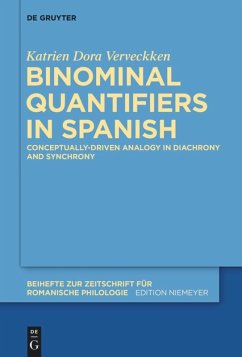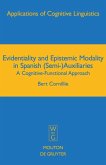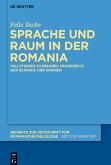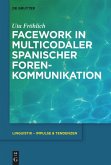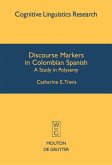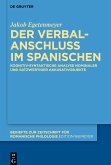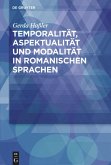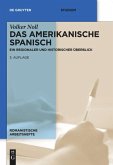Quantification is central to human experience (cf. Aristotleâ??s Organon): the most basic aspects of human life and reasoning involve quantity assessment. This study sheds lights on a highly frequent way to express quantification in Spanish, viz. the binominal quantifier (e.g. un aluvionN1 de llamadasN2 â??a flood of callsâ??) which assesses the quantity of N2 in terms of N1.
This volume offers a corpus-based, cognitive-functional analysis of binominal quantifiers (BQ) in Spanish. The first part is dedicated to the development of BQs and starts from the assumption that BQs are cross-linguistically involved in grammaticalization. This monograph frames the history of BQs in Spanish in terms of constructional levels of change and highlights the complex interplay between analogical thinking and conceptual persistence. The second part motivates both the ample variation in the paradigm of quantifying nouns and their combinatorial pattern by the very same mechanism of conceptually-driven analogy. The study thus yields an innovative functional model of BQs in Spanish, in synchrony and in diachrony, with major implications for reference grammars and theory building.
This volume offers a corpus-based, cognitive-functional analysis of binominal quantifiers (BQ) in Spanish. The first part is dedicated to the development of BQs and starts from the assumption that BQs are cross-linguistically involved in grammaticalization. This monograph frames the history of BQs in Spanish in terms of constructional levels of change and highlights the complex interplay between analogical thinking and conceptual persistence. The second part motivates both the ample variation in the paradigm of quantifying nouns and their combinatorial pattern by the very same mechanism of conceptually-driven analogy. The study thus yields an innovative functional model of BQs in Spanish, in synchrony and in diachrony, with major implications for reference grammars and theory building.

